- Home
- Leslie Meier
Irish Parade Murder Page 3
Irish Parade Murder Read online
Page 3
“So Rob will wrap up the paper. We’ll finish up the budget tomorrow morning. Be here at noon. Right?”
“Right, boss,” replied Rob, eagerly, and he added a little salute.
Lucy and Phyllis just nodded, exhibiting little enthusiasm for Ted’s changes. Lucy was definitely disgruntled, irked at the way Ted took her for granted, and resentful of the way he’d assigned Rob to edit her stories. She’d show him, and she’d show that bunch over at the Gabber!
Hearing her phone, she was surprised to see Bill was the caller. He was a busy restoration carpenter, and he rarely called during the workday unless something was wrong, so she was a bit concerned when she answered. “What’s up?”
“How about lunch?” he asked, surprising her. They rarely had lunch together, and usually only if they happened to be at home.
“Okay, but there’s not much in the house. I could make egg salad . . .”
“I was thinking of pizza. Meet me at Pizzapalooza?”
“Eat out?” Lucy was shocked.
“Yeah. Why not?”
“Okay,” agreed Lucy, glancing at the clock and seeing it was already noon. “I was just leaving the office.”
“Great. I’ve got something I want to talk to you about. Meet you in ten,” he said, ending the call.
What next, wondered Lucy, gathering up her things and intending to leave the office for the short walk down Main Street. She was on her way to the door when Rob called her by name.
“Lucy, where are you going? I haven’t finished editing your story, and I’ve got some questions for you.”
Lucy stopped and gave him the look that had reliably stopped all four of her kids in their tracks. “It’s noon, and I’m done for the day,” she said. “Phyllis can help you if there’s anything you don’t understand, or”—she added a shrug—“you could call Ted.” Satisfied that she had put this overreaching young smartie in his place, she turned and marched out the door, giving it an extra little shake so the bell’s jangle was extra loud. Pleased with herself, she continued on her way to the pizza place.
Pizzapalooza was a new arrival on Main Street, offering gourmet pizzas with creative toppings like avocado and vegan cheese. It had replaced the old-fashioned Tony’s—known for its greasy Formica tables, vinyl seats repaired with duct tape, and flickering fluorescents—with cheery, bright décor and classy pendant lights that dangled over each freshly reupholstered booth, but Lucy rather missed the older, grubbier place. Everyone agreed that the pizza wasn’t nearly as good, and she and Bill ordered a classic cheese with pepperoni, unwilling to experiment.
“I miss Tony’s crust,” said Lucy. “It was leathery, like New York pizza,” said Lucy, as they made their way to one of the many empty tables.
“It was a lot cheaper, too,” said Bill, replacing his wallet in his rear pocket before sliding onto the seat opposite her.
They looked up as the server brought them their Cokes and promised the pizza would be ready soon. After taking a sip, Lucy asked her husband what was on his mind.
“The funeral director sent me this,” he said, producing a long, white envelope from the roomy pocket of his barn jacket.
“A bill?” asked Lucy. “I thought your mother paid for the funeral.”
“Not a bill,” he said. “Read it, and tell me what you think.”
Opening the envelope, Lucy found several sheets of paper, folded in thirds. The top was a letter from a woman named Catherine Klein, introducing herself as Bill’s half sister.
“This is crazy,” said Lucy. “You’re an only child, and your parents didn’t have any previous marriages. Edna loves telling how she met your dad when she was seventeen, and they had to wait until she turned eighteen before her folks would let her marry. They were devoted to each other.”
“That’s what I thought,” said Bill. “Keep reading.”
The next two pages were copies of a DNA report from Genious.com, which featured a pie chart indicating that Catherine Klein was 40 percent English, 40 percent German, and 20 percent Swedish. The second page provided a family tree, which identified Bill Stone Sr. as her father, a nameless woman as her mother, and Bill himself as a half brother. Lucy stared at the diagrams for a long time, considering various explanations.
“Did your Dad ever mention sowing any wild oats?” she finally asked.
“Not to me,” said Bill. “And this woman is younger than I am, which means Dad must have cheated on my mother, which I find hard to believe.”
“Me, too,” said Lucy, folding up the papers and replacing them in the envelope, as if that could erase this disturbing news or contain it somehow. Cover it up and hide it. Then a troubling thought occurred to her. “Does your mother know?”
“I don’t think so. The funeral director wrote that this woman asked for Mom’s address, but he refused to provide it and offered instead to forward the letter. He said it was given to him in a sealed envelope, and he decided it would be better to send it to me rather than Mom. He said this sort of thing happens quite often; someone appears from the past and wants to reestablish relations with long-lost relatives, but he tends to be cautious about troubling—that was his word, troubling—recently bereaved people, especially older widows. I got the impression a lot of these folk are after money.”
“I suppose some people simply want to belong to a family. That must be why she did the DNA search.” She paused, as the server arrived with their fragrant, steaming-hot pizza and set it on their table. “Do you have any idea who she is? Was she at the funeral?”
“She sent a photo,” said Bill, producing a two-by-three-inch head shot and sliding it across the table to Lucy.
“Oh my goodness,” exclaimed Lucy, recognizing the face. “I remember her from the funeral. She made a big fuss about how nice the service was. She said we were a wonderful family.”
“So wonderful she wants to join it,” said Bill, helping himself to a slice. “Do you think she’s for real?” he asked, then bit off the end.
“Maybe,” said Lucy, taking a piece for herself. “But I think we need to be skeptical. People aren’t always who they say they are.”
Bill sighed. “But DNA doesn’t lie, does it?”
“I guess we’ll find out,” said Lucy, plucking a piece of pepperoni off her slice, popping it in her mouth, and deciding that Tony’s pizza was definitely better.
Chapter Three
Lucy chewed thoughtfully, trying to imagine Bill’s folks as young parents. She’d seen photos, of course, but photos didn’t always tell the truth. People said “cheese” and smiled automatically when faced with a camera, revealing little of what they were truly feeling. Good looks covered a lot, too, she thought, remembering a news photo of an adorable, dimpled mass shooter with a killer smile. Edna and Bill were pictured in plenty of old photos, photos that were now curling with age, and they’d seemed happily married and terribly proud of their new baby, Bill. “There’s quite a few years before kids become aware and remember things,” she said, picking up her slice. “Those early years are pretty much a blank, right?” she asked, before taking a bite.
“That’s what I was thinking,” admitted Bill. “Maybe Mom had postpartum depression . . . maybe Dad freaked out about being responsible for a baby . . . I guess there could have been a period when they were separated.”
“But they never mentioned it,” said Lucy.
“No.” Bill shook his head. “And I remember asking Dad for advice a few times, when things weren’t so great between us.”
“What do you mean?” challenged Lucy. “When was this?”
He shrugged. “Oh, when you went back to school and took that course; it was years ago.”
“Oh,” said Lucy, looking down and studying her pizza with great interest. That was an episode she wasn’t proud of, when she was attracted to a young professor but hadn’t realized that Bill had noticed. “What did your dad say?”
Bill chuckled. “He said not to worry, that you were a good girl.”
&nbs
p; “And so I am,” said Lucy, eager to regain the high ground. “But I guess the question is, was your dad a good boy?”
“I’ve certainly never had any reason to think otherwise,” said Bill. “But he was pretty private; you didn’t always know what he was thinking.”
Lucy asked the question she’d been wanting to ask since the funeral. “Is that why you didn’t speak about him at the memorial service? I thought for sure you’d tell about the Christmas he sent the surprise check, the money that got us through that awful first winter in Maine.”
Bill chuckled. “I figured that if I told that story, he’d materialize someow and rise right up out of the urn and brain me. That was between us and him; it wasn’t for anybody else to know about.”
Lucy sipped at her diet Coke. “So you’re kind of saying he might’ve had an affair.”
“I don’t really know, Lucy, but it’s possible.” He sighed. “And if he did, I doubt that he ever would have told my mother.”
“She might have figured it out,” suggested Lucy. “Men aren’t very good at hiding evidence, and you learn a lot from doing the laundry.”
Bill smiled naughtily. “I guess I’ll have to be more careful in the future about those lipstick stains.” He took a bite of pizza and chewed thoughtfully. “But I’m sure not going to ask my mother if she had any suspicions about Dad. Not now, not while she’s grieving.”
“So what are you going to do about this Catherine Klein?” asked Lucy.
“Beats me,” said Bill, wiping his mouth with a paper napkin.
* * *
Dinner that night was unusually silent, as both Bill and Lucy were occupied with their own thoughts. Bill was worrying about his mother and how she would take this news, and Lucy’s mind kept flitting between the problem of Catherine Klein and the new situation at work. The girls, however, were in high spirits, describing the float they were already planning to build as members of the Interact Committee at Winchester College for the upcoming St. Patrick’s Day parade.
“We’re going to have students dressed in their national costumes,” said Zoe, taking a drumstick and passing the platter of chicken.
“And there’ll be flags from all different nations,” added Sara, choosing a thigh.
“And music, too,” said Zoe, looking curiously at her mother, who was staring at the bowl of mashed potatoes as if it held the secret of the universe or might at least give some inkling of what the future held for her at the Pennysaver.
Aware of Zoe’s glance, she quickly said, “Uh, nice,” and passed the potatoes to Bill, who passed them on to Sara without taking any.
The girls looked at each other. “Is something the matter?” asked Sara.
“Yeah, what’s going on?” demanded Zoe. “I don’t think either of you have heard a word we’ve said.”
“I have,” insisted Bill, helping himself to salad. “But I don’t understand why you’re having all this international stuff for an Irish parade.”
“Because we’re the Interact Club; it’s the club for exchange students,” explained Sara.
“Are any of them from Ireland?” asked Bill, in a rather confrontational tone. “And how come nobody passed me the potatoes?”
“We did,” snapped Zoe, “but you didn’t take any, which, frankly, was kind of weird.”
Lucy could sense that Zoe didn’t appreciate her father’s line of questions and decided to change the subject. “Actually, you’re right. I have been distracted. Ted hired a new guy at the paper, and I’m worried he’s going to get all the big news stories.”
“I thought Ted was hanging on by a thread and the paper could fold any minute,” said Sara.
“He was, and it could have,” admitted Lucy. “But he got a grant from this TRUTH Project outfit to buy the Gilead Gabber and hire this hotshot who’s supposed to help us improve local news coverage.” She picked up her fork. “And now the new guy, Rob, is going to cover the grand-marshal selection, which is a big story. I’ve got the usual committee meetings, and believe it or not, Ted actually assigned Rob to edit my stories this morning. It looks like this guy might actually be our new editor.”
“That’s not fair,” protested Sara. “You’ve been there forever.”
“And I’ve developed lots of contacts, and I’ve got the background knowledge,” said Lucy.
“Well, whatever you do, don’t share anything,” advised Zoe. “I can just see this guy asking for help, and you’re too nice to tell him to figure it out for himself.”
“Especially since he’s supposed to be the big expert!” declared Sara.
“Women do this all the time,” said Zoe. “They take pity on the helpless male, who ends up undercutting their work in the end, and getting all the credit.”
“I object,” said Bill, helping himself to another piece of chicken. “You’re making it sound as if men are inferior to women. And why shouldn’t your Mom help the new guy out if it helps the paper?”
“Because women have to work twice as hard to earn three-quarters of what men make, that’s why,” said Sara.
“It’s not a level playing field, Dad,” declared Zoe, “and women lose every time they help some dumb guy climb right over them to get the promotion, or the raise, or the award.”
“Women have got to do what men do, which is play the game to win.”
“But there’s no ‘I’ in team,” offered Bill, rather feebly.
“Building a career is not a team sport,” said Sara. “It’s an individual accomplishment, and Mom has worked hard to make her byline mean something.”
“Yeah, Dad,” said Zoe. “It’s about time Mom got the credit she deserves. She’s worked hard all these years, and she’s an amazing journalist, and she doesn’t need anybody telling her how to do her job.”
Sitting there, listening to her daughters defend her, Lucy was stunned. “Golly, guys, I didn’t know you’d noticed.”
Everybody laughed, but later, as she cleared the table and loaded the dishwasher, Lucy thought about what the girls had said and vowed to take her work more seriously. Sure, she was only a part-time reporter and feature writer, but she was very good at her job and didn’t need to take a back seat to anyone, especially not some young whippersnapper like Rob Callahan!
* * *
On Thursday morning. Lucy joined her friends for breakfast at Jake’s Donut Shack. The weekly gathering had developed as a substitute for the casual meetings the four friends had enjoyed at school and sports events when their kids were younger. As their nests emptied and the kids flew off to college and careers, they realized they needed to get together regularly to share advice and offer each other support with life’s challenges. Lucy always enjoyed these breakfasts; she had missed them while she was away in Florida and greeted her three friends with a big smile. Rachel Goodman, who was a psych major in college and never got over it, was quick to offer Lucy sympathy when she joined the group.
“Lucy, I’m so sorry about Bill’s father. How are you all coping?” she asked, peering over her coffee mug with big, brown eyes. Rachel’s husband, Bob, was a busy lawyer in town, and Rachel was a caregiver for Miss Julia Ward Tilley, who was Tinker’s Cove’s oldest resident.
“Thanks,” said Lucy, sliding into a seat. “It was kind of sudden, but I was really encouraged by the kids’ reaction. They gathered round. Elizabeth even came from Paris, and they all spoke so nicely at the service. They had wonderful memories of Grandpa—even a few stories that were news to me.”
“That’s great,” said Rachel, “and such a positive way for them to deal with their grief. How is your mother-in-law doing?”
“Edna’s not one to get overly emotional,” said Lucy. “I know she misses Bill Senior, and we want her to come for a visit real soon, but I’m not at all convinced she’ll do it.”
“You should encourage her to open up and express her feelings,” advised Rachel, as Norine, the waitress approached, order pad in hand.
“Easier said than done,” said Lucy, giving Norine
a big smile.
“So is it the regular orders for everyone?” asked Norine, licking her pencil. “Sunshine muffin for Rachel, organic yogurt parfait for Pam, hash and eggs for Lucy and”—she narrowed her eyes and glared at Sue Finch—“black coffee for you.”
Sue, perfectly turned out, as always, in skinny jeans and a cashmere sweater, flicked a lock of shiny black hair away from her face with a beautifully manicured hand and smiled a polite little smile. “Thanks, Norine.”
“A donut wouldn’t kill you, you know,” said Norine.
“I just don’t have any appetite in the morning,” said Sue, with a little sigh. Truth be told, nobody had seen Sue eat any solid food in years, and Lucy suspected she survived on a liquid diet of white wine and black coffee.
“I’ll be back with the coffeepot,” promised Norine, who quickly returned to supply Lucy with a mug and to top off the others’ with fresh coffee. When they were all supplied with caffeine, Pam called for attention, tapping her water glass with a spoon.
“I have a big announcement,” she said, with a toss of the ponytail she always wore. “Lucy knows already, but Ted and I have bought the Gilead Gabber. Now the Pennysaver won’t be limited to Tinker’s Cove news; the expanded paper will cover the whole county. It’s very exciting.”
“Congratulations!” trilled Sue, raising her mug. “We must toast to your success!”
“Here, here,” added Rachel.
“To success,” said Lucy, who was still uneasy about the paper’s expansion.
“This will mean a lot of changes, I suppose,” said Rachel, who had picked up on Lucy’s muted response.
“Changes for the better,” said Pam, who had been a high school cheerleader and was still given to bursts of enthusiasm. “Ted found out about this foundation that is dedicated to improving local news. Do you know that there are news deserts in this country, where people have no way of knowing what their local governments are up to because they’ve lost their local papers? And Tinker’s Cove came close, quite a few times. We even got a second mortgage on the house at one point, just to keep the Pennysaver going. Now, thanks to this grant from the TRUTH Project—that’s what it’s called—Ted has been able to acquire the Gabber and he’s also hired a big-city reporter who’s going to, uh, professionalize the paper.”

 Christmas Card Murder
Christmas Card Murder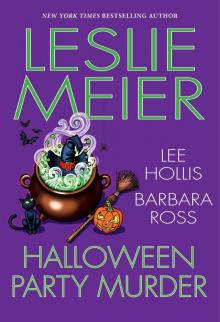 Halloween Party Murder
Halloween Party Murder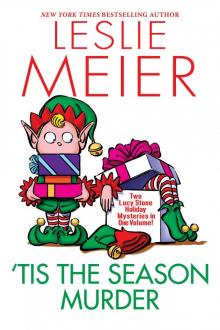 'Tis the Season Murder
'Tis the Season Murder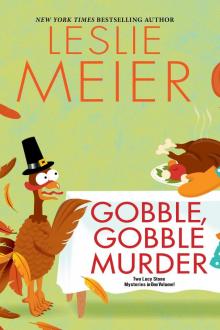 Gobble, Gobble Murder
Gobble, Gobble Murder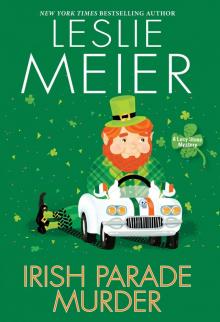 Irish Parade Murder
Irish Parade Murder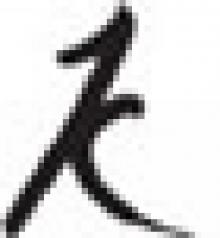 Bake Sale Murder
Bake Sale Murder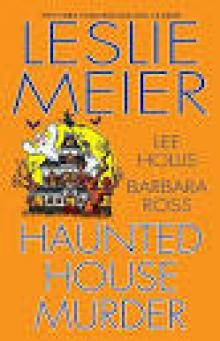 Haunted House Murder
Haunted House Murder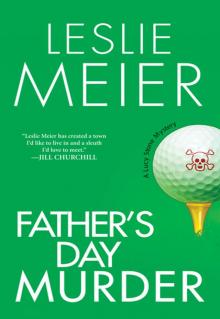 Father’s Day Murder
Father’s Day Murder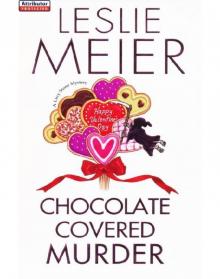 Chocolate Covered Murder
Chocolate Covered Murder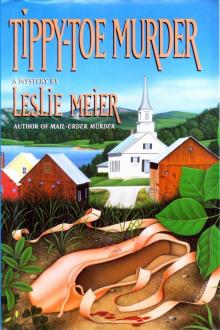 Tippy Toe Murder
Tippy Toe Murder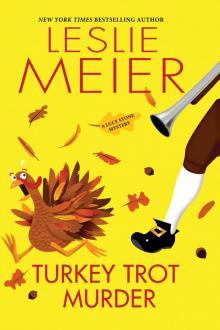 Turkey Trot Murder
Turkey Trot Murder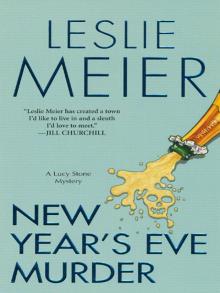 New Year's Eve Murder
New Year's Eve Murder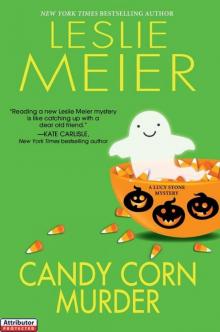 Candy Corn Murder
Candy Corn Murder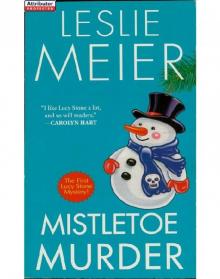 Mistletoe Murder
Mistletoe Murder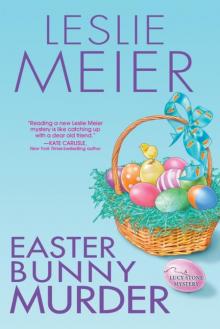 LStone 20 - Easter Bunny Murder
LStone 20 - Easter Bunny Murder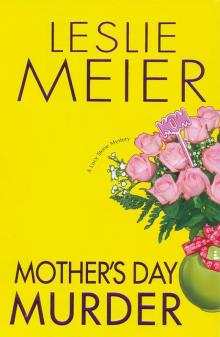 Mother's Day Murder
Mother's Day Murder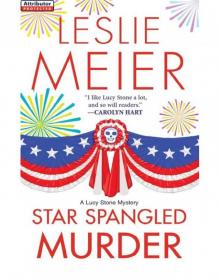 Star Spangled Murder
Star Spangled Murder Silver Anniversary Murder
Silver Anniversary Murder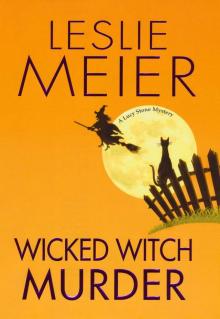 Wicked Witch Murder
Wicked Witch Murder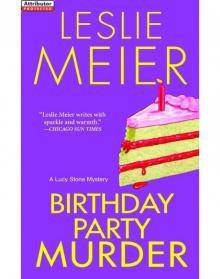 Birthday Party Murder
Birthday Party Murder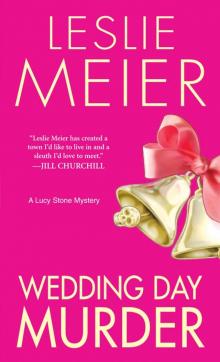 Wedding Day Murder
Wedding Day Murder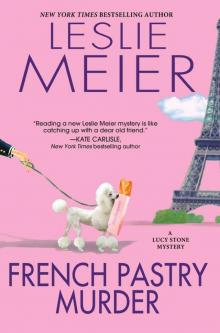 French Pastry Murder
French Pastry Murder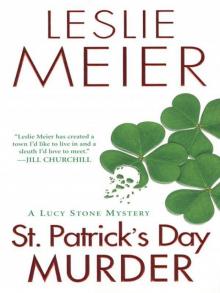 St. Patrick's Day Murder
St. Patrick's Day Murder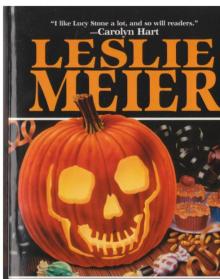 Trick or Treat Murder
Trick or Treat Murder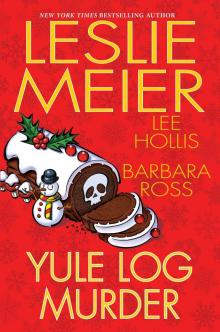 Yule Log Murder
Yule Log Murder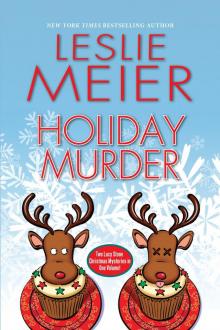 Holiday Murder
Holiday Murder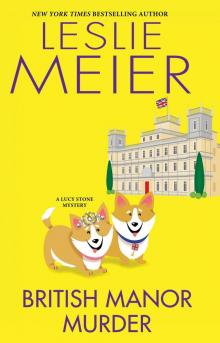 British Manor Murder
British Manor Murder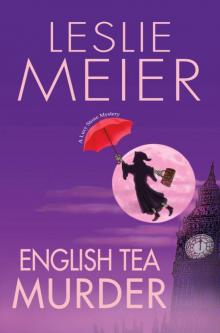 English Tea Murder
English Tea Murder